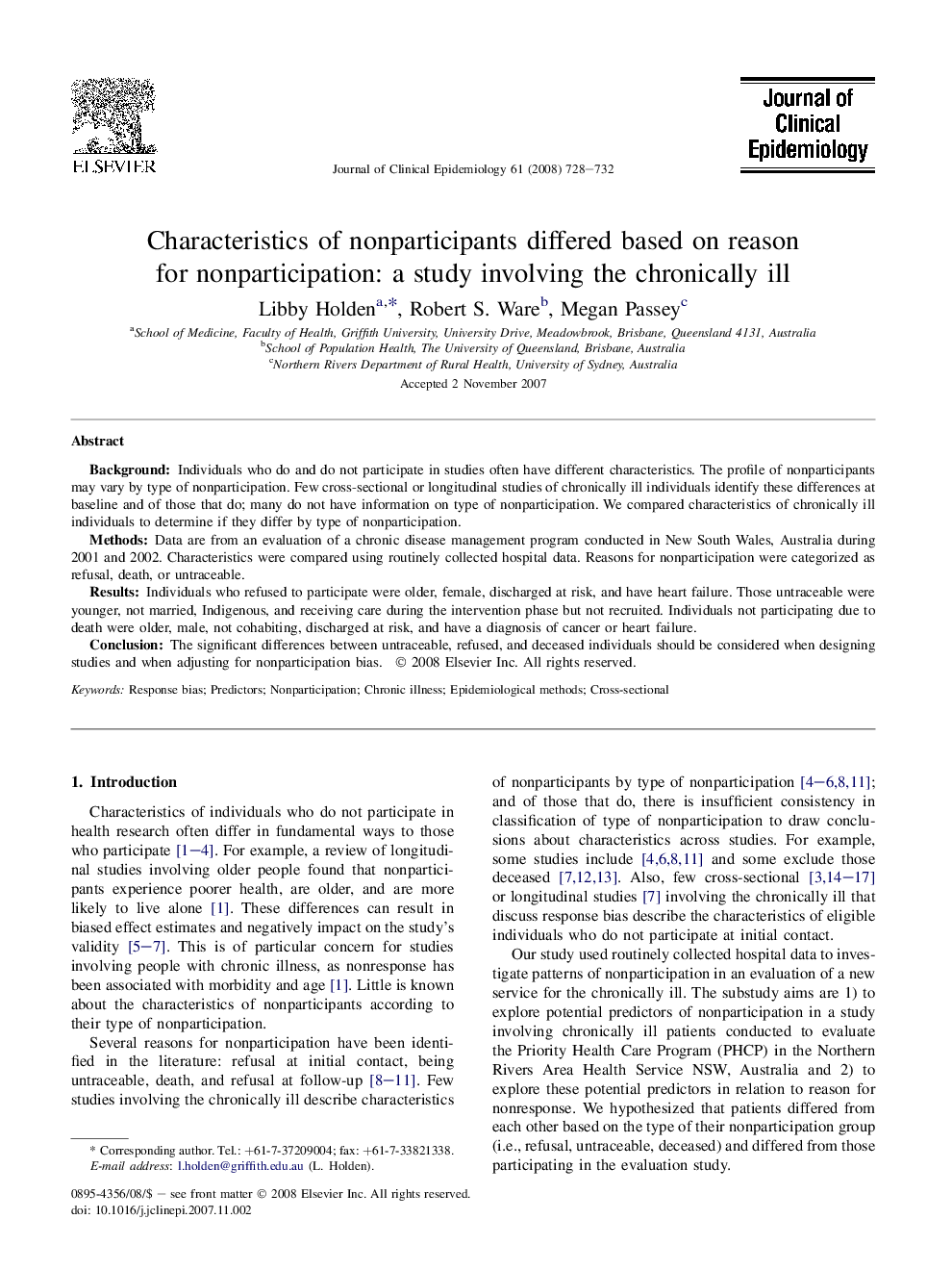| Article ID | Journal | Published Year | Pages | File Type |
|---|---|---|---|---|
| 1083700 | Journal of Clinical Epidemiology | 2008 | 5 Pages |
BackgroundIndividuals who do and do not participate in studies often have different characteristics. The profile of nonparticipants may vary by type of nonparticipation. Few cross-sectional or longitudinal studies of chronically ill individuals identify these differences at baseline and of those that do; many do not have information on type of nonparticipation. We compared characteristics of chronically ill individuals to determine if they differ by type of nonparticipation.MethodsData are from an evaluation of a chronic disease management program conducted in New South Wales, Australia during 2001 and 2002. Characteristics were compared using routinely collected hospital data. Reasons for nonparticipation were categorized as refusal, death, or untraceable.ResultsIndividuals who refused to participate were older, female, discharged at risk, and have heart failure. Those untraceable were younger, not married, Indigenous, and receiving care during the intervention phase but not recruited. Individuals not participating due to death were older, male, not cohabiting, discharged at risk, and have a diagnosis of cancer or heart failure.ConclusionThe significant differences between untraceable, refused, and deceased individuals should be considered when designing studies and when adjusting for nonparticipation bias.
